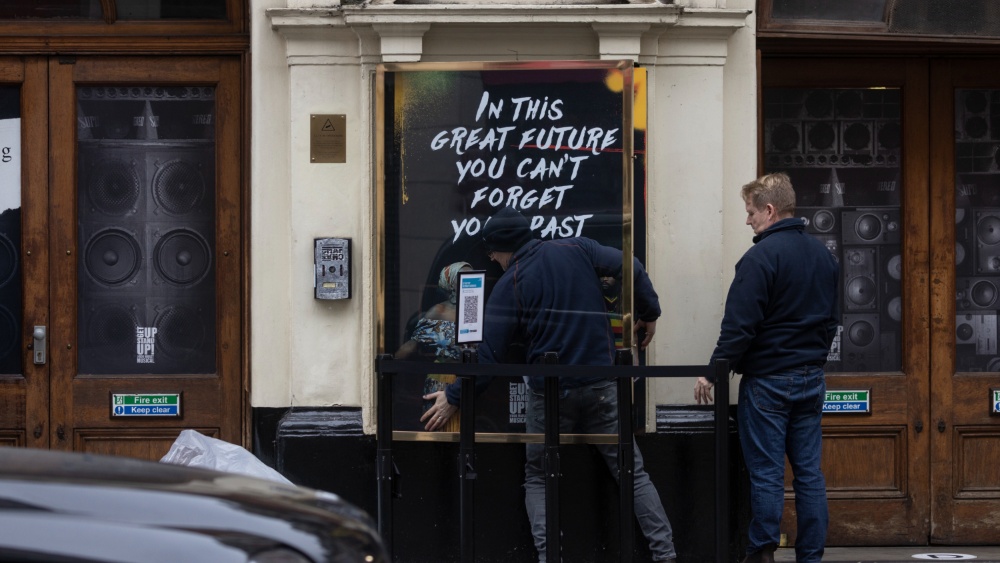U.K. entertainment freelancers are facing an unprecedented crisis, with nearly half earning below the legal minimum wage, according to the final Big Freelancer Survey released Thursday by Freelancers Make Theater Work (FMTW).
The sobering report, titled “Who’s Taking the Hit?,” reveals that 44% of the 1,270 surveyed freelancers earned less than the U.K. national living wage of £11.44 ($15.50) per hour in the 2023-24 financial year — a dramatic increase from 34% the previous year.
The survey spans the breadth of U.K. entertainment, with respondents working across theater (84%), live events and concerts (34%), opera (23%), dance (22%), film (16%), TV (14%), recorded audio (14%), video games (2%) and circus (4%), among other sectors.
“The data provided by thousands of respondents since 2020 presents a clear — and deeply concerning — picture of the situation in which U.K. arts freelancers find themselves,” said Mimi Doulton, classical singer and FMTW volunteer. “Year-on-year, the responses have highlighted intensifying issues of low pay, inequality, and insecurity.”
The crisis runs deeper than wages alone. The survey found that 32% of freelancers reported working 50% or more unpaid hours, while 75% said their work-related expenses had increased over the past year. Only 30% reported income increases, with 40% suffering decreased earnings.
Mental health concerns are reaching critical levels, with 39% of respondents reporting worsened mental health over the past year and 70% feeling “quite” or “very insecure” about their careers — up from 65% in 2024.
Perhaps most alarming: a quarter of freelancers are considering leaving the industry entirely, citing low pay (68%), insufficient work opportunities (57%), mental health concerns (52%) and job insecurity (48%) as primary factors.
“Even being employed 45 weeks of the year across different projects, the rates of pay are not high enough to cover my mortgage and living costs,” one anonymous freelancer stated.
The pay disparity is particularly stark for marginalized groups. Among those earning below the national living wage, the figures rise to 55% for those with disabilities, 54% for those from less-privileged socioeconomic backgrounds, and 47% for female respondents.
The geographical divide is equally troubling. Despite London’s role as the industry’s hub, 53% of freelancers earn less than the London Living Wage of £13.85 ($18.75) per hour — meaning the majority cannot afford to live in the city where much of the work is concentrated.
Film and TV freelancers echoed concerns felt across entertainment sectors. “Brexit has made European touring hard,” noted one respondent, while another observed: “The industry has definitely NOT ‘come back stronger’ since the pandemic.”
The funding crisis underlying these issues is evident in the survey data. Only 8% of respondents received funding from Arts Councils or Creative Scotland, illustrating the challenging environment for independent artists and small producers across all entertainment verticals.
Artificial Intelligence emerged as a growing concern, particularly for those in voiceover and composition work. “I have experienced a lot of insecurity because of the rise of AI,” one freelancer reported. “Clients have said things like ‘we wanted to use the AI guide voice instead of you, but it can’t do nuance, so we called you in.’”
Union membership remains at 56%, but freelancers cite affordability concerns and inadequate representation for their roles as barriers to joining. Many called for free-to-join unions or income-based sliding scale membership options.
The survey, conducted annually since 2020, marks the end of a planned five-year series that has documented the deteriorating conditions for the U.K.’s freelance entertainment workforce, which comprises over 70% of the theater industry and significant portions of other sectors.
Despite the grim statistics, freelancers continue to demonstrate resilience and hope. Many shared examples of good practice across the sector, from organizations providing mental health support to those implementing fair pay transparency and supporting working parents.
FMTW’s recommendations include working with government and funding bodies to develop models guaranteeing fair pay, advocating for better understanding of freelancers’ needs, and creating mechanisms to challenge exploitative practices.
“The performing arts in the U.K. cannot survive without a thriving freelance workforce,” Doulton said. “It is time now for government, unions and arts organizations to act on this data and make urgently needed, fundamental changes to the entire industry’s working relationship with freelancers.”

